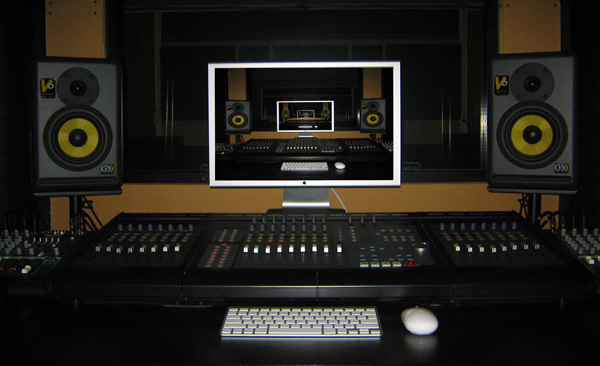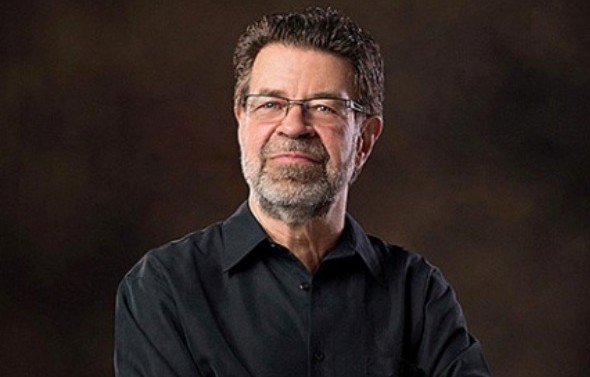How COVID-19 Changed the Voice-Over Industry
Towards the end of 2019, the COVID-19 virus was detected and started spreading rapidly across the globe. While the pandemic was not at first taken seriously, it soon became apparent that authorities would have to make several adjustments, regardless of the inconvenience, to protect their citizens and slow down, if not stop, the spread of the Coronavirus. Some of the measures included wearing protective face masks in public spaces. Still, soon, governments resorted to locking down their countries and only allowing essential workers to work from their offices. What followed was a historical shift in the work process of most organizations, with millions of employees having to work remotely through virtual office spaces.
To some people, this new shift seemed somewhat preferable, and even when the pandemic started to clear up, thousands of workers carried on working from home. Unfortunately, this is still the case, with the change appropriately named The Great Resignation. While it is still unclear whether things will ever entirely go back to the previous normal, remote workers all over the globe, have realized the need to make appropriate adjustments to catch up with the reality of working from home.
How did the voice-over industry work before COVID-19?
In the past, most actors and voice-over artists worked from a studio in a voice-over agency or professional studio. Their typical day included commuting to their respective studios or audition locations and recording their parts. As a result, there was a lot of physical interaction among voice talents, their agents, and other actors.
Auditions were usually held at a central location where each candidate presented themselves physically. They were often held in agency studios or offices equipped with recording studios or in advertising and production company studios across the country.
Working from an office had obvious benefits for voice-over talents, including working alongside other actors in a shared space, working in a professional studio if one was available, or having access to an external professional voice-over studio. Voice-over actors would mostly spend the typical day at a studio recording or going over their parts with their agents to prepare voice-over projects for clients.
What is the current state of the voice-over industry?
After COVID-19, many individuals or companies with no previous experience in remote offices were forced to learn how to work from home. While there was a sense of excitement at first, it didn’t take long before most realized that working from home comes with its challenges. It soon became evident that working remotely had its own requirements and adjustments that needed to be made.
Seeing as most offices closed during the pandemic, voice-over artists now have to seek remote job opportunities. Everything from auditions to recording is currently being done from home, and many voice actors are setting up studios at their homes. They are also using online voice-over agencies to audition and work from the comfort of their homes.
One of the significant challenges that many voice actors now face is the loss of office culture. An established set of rules and norms in an office setting worked but are now no longer there. This may be a good thing for many voice actors who want to work from home because it means they can work from wherever they are able to do the job. However, it also means that many senior managers and executives are no longer supervising or guiding them daily. In addition, it makes it harder for a creative director or other creative staff to monitor casting sessions and other creative decisions because these will also need to be done from home.
Voice actors now have to find jobs, apply and audition for them, make recordings, and collaborate from home.
What changes did the pandemic bring to the industry?
The Coronavirus or COVID-19 pandemic changed the way that many actors and voice-over artists worked. With an almost complete shutdown of offices in the US, individual actors and voice-over artists had to look for a way to work from home. While not nearly as bad as it was in other parts of the world, the pandemic did significantly impact how today’s job market works.
Working from home impacted the sense of community. In an office setting, many voice-over artists are exposed to people from all walks of life and cultures. In a home studio, you are mainly exposed to fellow voice-over artists or other individuals who share similar interests.
Another significant change is the type of clientele that voice-over artists will be able to work for. In previous years, most voice-over artists and actors worked for local companies and clients. Therefore, they would not expect an agency or studio to cast for them voice-over jobs in another state or country. If they were lucky enough, they might get a chance to work with international clients on a direct casting basis.
With the growing popularity of voice-over artists worldwide, it is not uncommon to find that most voice-over projects are now being cast internationally, most often from Europe. While this may be a logical decision for many job-seekers living all over the world, it also means that they will need to be aware of the different time zones and business hours between them and their potential employers.
How are voice actors adjusting to these new changes?
Many voice actors have been working from home for a while now and have adjusted to the changes that remote work has made.
One way many actors have been able to adjust is by regularly getting new jobs. Since new projects can come from anywhere globally, getting auditions and keeping a flow going is of the utmost importance. With COVID-19, it has become even more challenging for voice-over artists to get out of their everyday lives and pursue opportunities outside their local areas.
As previously mentioned, the main issue with working from home is the lack of office culture. Working in an office made it easy for voice-over artists to get advice and guidance from their colleagues. This is missing in a remote setting, and many voice actors struggle to find ways to fill that void. In addition, since they will not talk face-to-face with their colleagues, they need to learn to work well with them through online communication channels such as email, Skype, or other messaging services. Unfortunately, this doesn’t leave much room for personal conversations or imparting knowledge among each other like they would in an office setting.
Another major change is the need for voice talents to set up reliable and functional home studios. Many actors and voice-over artists working from home will need to invest in a home studio to continue working on their projects. They also need the means to record their voice-over work away from their offices.
Essentially, the most significant change in the industry is the shift from office to working from home. While initially challenging, the benefits of remote work are beginning to outweigh the positive aspects of office work.
The shift from working in an office to working from home has made it easier for voice actors to get jobs anywhere in the world. For example, Canadian voice-over agencies can now cast for projects all over North America, which allows them to collaborate with the best talent available. Another benefit of working from home is that actors can streamline their workflow. For example, if they have a voice-over project that requires recording at night or on weekends, they need not worry about their travel arrangements because they can stay at home.
What stays the same?
Voice talents are still expected to produce good-quality work. The pandemic did not change the fact that the industry needs to trust in their voice talents to get the job done well.
While it is now easier for voice-over artists to get auditions, it is even tougher for them to leave their day-to-day lives and pursue opportunities. With COVID-19, voice actors are bound by contract to prioritize work they are offered over other jobs they may take on.
Professionalism has stayed the same. Whether working from home or in an office, actors still need to adhere to rules and norms when they are working on a project.
Although the shift has had its challenges, there are far more benefits to working from anywhere in the world. Since they can cast for projects almost anywhere in the world, voice-over agencies can get the best talent available for their projects.
With the ease of working from home, voice actors have found it more difficult to balance their personal and professional lives. Now that they have no office or colleagues to consult with about their auditions or upcoming projects, face-to-face interactions with fellow actors and voice-over artists are less frequent.
This means that voice artists need to develop 11th-hour strategies to get their auditions. In the past, many actors could be cast physically from anywhere with relative ease. However, since they cannot be cast from all over the country, they must now set up a way of communicating with each other even if they do not manage to meet up in person.
This has led voice artists to consider establishing a social network or meeting new people on social media. This is becoming increasingly popular among actors who wish to remain connected with fellow actors and voice-over artists even when they are no longer working together in the same studio or agency.
What new skills should voice actors learn to cope with these changes?
1. Self-discipline
To work effectively from home with no supervision, a voice actor needs to learn how to work independently. This will require them to have proper self-discipline and a high level of self-motivation. In addition, they need to plan how they will manage their tasks for the day, week, month, or year.
2. Work-life balance
To work from home, an actor needs to find a good balance between personal and professional life. To avoid getting overwhelmed with projects and responsibilities, they must never forget that they must take time off from work to recharge themselves and spend time with their loved ones. Otherwise, stress might accumulate over time, which might lead some actors into depression or anxiety.
3. Communication
Voice actors need to communicate effectively with their colleagues. Since they can no longer talk to each other face-to-face, they must learn to work well together through online communication channels.
4. Time management
Now that voice actors are self-employed, they need to figure out their own schedules and plan for their jobs accordingly. They also need to make time for themselves, whether for leisure or for taking care of personal responsibilities. Otherwise, they will soon become overwhelmed with projects and responsibilities, leading some voice actors into professional burnout.
5. Exposure
As voice actors no longer work in an office or studio, they also need to work hard to build their brand and reputation. They will benefit from working with several different advertisers and clients, giving them exposure and potentially earning them more significant income for their work.
6. Networking
Now that voice-over artists work from home and communicate primarily through social media, they need to find ways of networking with fellow actors and voice-over artists even if they do not manage to meet up in person. This is becoming increasingly popular among those who want to stay connected with fellow actors and voice-over artists even when they are not together in the same workplace or company.
While these are skills that a voice talent should already possess, they are more critical now than ever before. Voice artists working from home need to learn how to work independently and how to take care of themselves. They should also learn how to work well with their colleagues, particularly when they do not manage to meet face-to-face very often.
How can voice actors best serve their clients in the COVID-19 era?
1. Keeping in touch
Since they must now take care of themselves and find a schedule that works for them, voice actors need to continually keep in touch with their employers and colleagues via email and social media. They should never forget to communicate with their employers as often as they can, even if it is only every other week, because the closer they are to their clients or clients’ clients, the more trust and loyalty their clients will develop for them.
2. Communicating clearer
Voice-over artists need to make sure that they are communicating clearly with companies or studios who wish to hire them for jobs. Therefore, they should always be prepared before sending an audition for a company or agency. For example, they should always check to make sure that their audition is polished and clear and that they have double-checked the format and length of the script before sending it.
3. Project-oriented scheduling
Since voice artists now work from home, they need to set up a schedule for themselves to manage their workload more effectively. Since no one is managing them, it’s up to the voice actors to create a good schedule for themselves to not get overwhelmed with projects or responsibilities.
4. Communication channels
Voice-over artists must learn how best to communicate with clients via social media and email. They need to understand how these technologies work so they can utilize them to serve their clients best. For example, if their clients want to keep in close contact with them, they should find a way of keeping in close contact with their clients to ensure that the job is done well and on time.
5. Familiarizing themselves with clients’ needs
Before sending an audition, voice artists should familiarize themselves with the company or studio that wishes to hire them for the job. They can do this by doing research on social media or through other means. When they do this, they will be able to determine the company or studio’s main goals and concerns and make sure that their audition is geared toward meeting those goals and concerns.
6. Knowing their value
Voice artists whose work is affected by COVID-19 need to learn how to protect their work and know their worth. They also need to understand the kinds of projects affected by the COVID-19 phenomenon so they can decide whether these projects pay enough to justify the output of the time required. They should also understand that, because of COVID-19, voice actors now tend to earn less than what they used to make due to the fact that more people are doing this kind of work now.
Has the COVID-19 pandemic changed the voice-over market?
The short answer is yes. As a result of COVID-19, the voice-over market has been affected in several ways.
1. Fewer voice artists are being hired
Some clients who used to hire professionals to do their voice-overs now have to use alternatives such as free or much cheaper voice-overs. While the quality of such work may undoubtedly be much lower, this is an economic impact of the pandemic, and many clients can’t really afford to pay the same rates as they did in the pre-Corona period. With more and more people joining the online voice-over industry, some artists might have a hard time finding new jobs or keeping the ones they already have if they cannot deliver very high-quality work and stand out from their counterparts.
2. A wider selection of jobs
Working remotely has exposed voice talents to opportunities all over the world. Many local and foreign companies and studios need people to work for them from anywhere in the world. This gives more voice actors the chance to find jobs more easily and get paid well.
3. More opportunities for the average person
This industry is now more accessible to people who are not professional voice actors. This is because people outside of this industry can also find, apply for, and do voice-over work online, which means that it is now possible for the average person to become a voice-over artist. However, this does not mean that they can get jobs quickly and find work on their own. On the contrary, they need to train and learn how to do voice-overs before trying to get into this business, or else they might give up on it very soon.
What has changed in the way that companies hire talent?
The short answer is that a lot has changed. While some companies still hire voice actors just the way they did before (traditionally using agents and physical studios to audition), a large part of the industry has shifted online. Talent scouting, jobs, auditions, casting, and submissions are now mostly done online. Every day, better and more effective online tools and office spaces are available for online voice talents. With the added convenience and reduced costs, this is likely to become the new norm.
COVID-19, however, has affected the businesses of some companies. With the economies plummeting, some companies are doing away with professional actors and giving voice-overs, getting work from existing staff or cheaper individuals. This is, however, likely to turn around with the end of the pandemic.
Will the market eventually return to what it was before? We can’t say! However, since more and more people are turning back to hiring professional voice-over artists again, there is some hope that things might eventually get back on track.
Are there more changes yet to be expected?
More changes may be expected in the future. There are so many professional and aspiring voice-over artists now to meet the local and international demand. While there may be some work shortage compared to the pre-COVID era, things are expected to eventually even out and set the market back to a reasonably average pace. Moreover, as more and more people turn back to hiring voice actors to do their jobs, the market will become easier for them to find work.
In the meantime, voice artists should understand how this pandemic works and how they can protect their income from the COVID-19 phenomenon.
Conclusion
The COVID-19 virus, or COVID-19 pandemic, has created numerous changes in the voice-over industry. Although the industry may not return to its former glory for many years, it will continue to progress and provide better results for more people.















